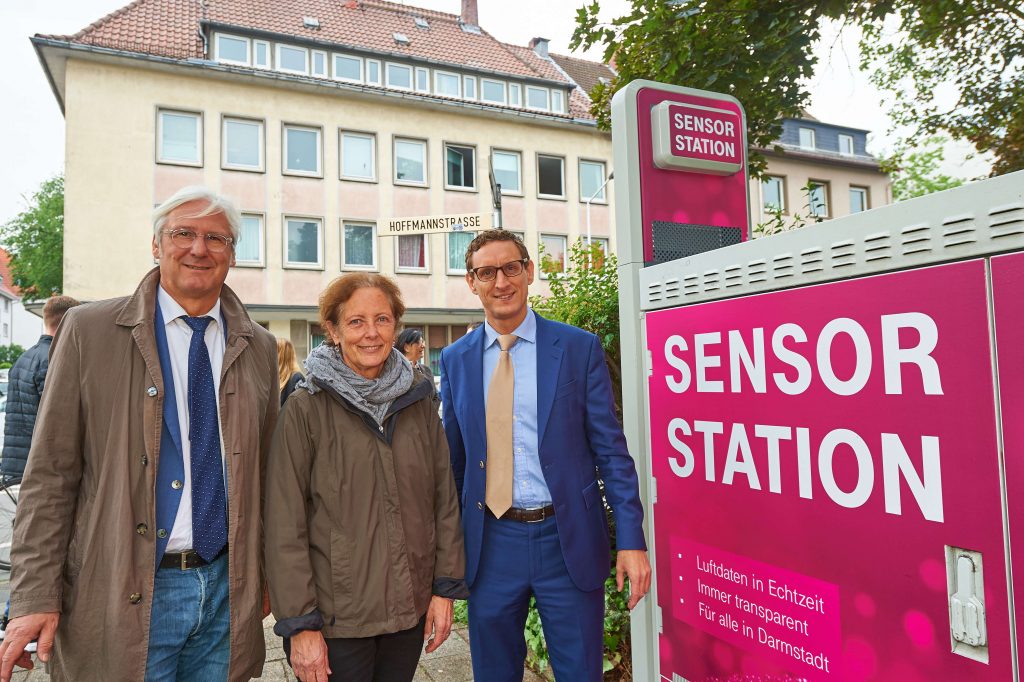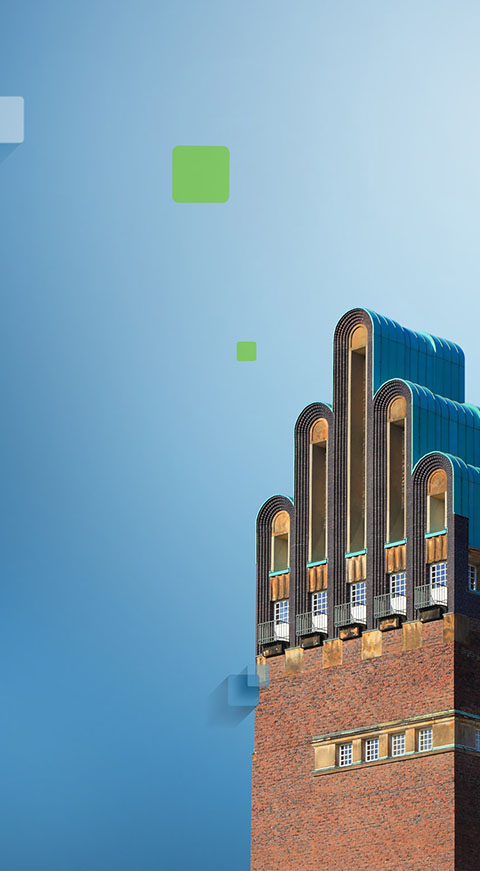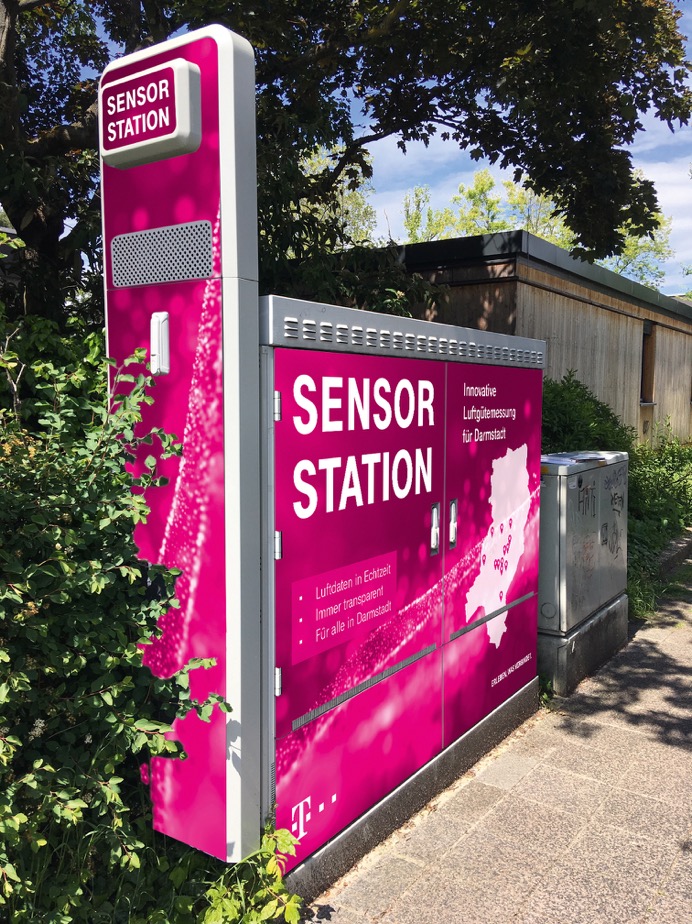Digital measurement network
for air pollutants
In Darmstadt, air quality and the levels of particulate matter and gases are recorded using a new, complementary digital measuring network.

Improving air quality in Darmstadt with the help of the digital pollutant measurement network
The digital air quality monitoring network currently consists of 12 measuring columns in the city. These are mounted on existing multifunctional housings from Deutsche Telekom AG. There, the sensors measure the pollutants NO2, NO, ozone, and particulate matter. The new digital air pollutant monitoring network will initially be tested until the end of 2019. In the medium term, it is intended to supplement the existing measuring points in the Science City of Darmstadt and operated by the Hessian State Office for Nature Conservation, Environment, and Geology (HLNUG). This will significantly increase the availability of measurement data and provide additional information. The system sends the measured values from the 12 columns at configurable intervals to a data center, where algorithms calculate the pollutant concentration. The measured values are then directly available to the City of Darmstadt for evaluation and further processing.
The collected data can help to better evaluate the planned and already implemented measures of the Green City Plan of the Science City of Darmstadt to reduce nitrogen dioxide air pollution within the city. The primary goal of reducing nitrogen dioxide emissions is to protect the health of the people of Darmstadt. The goal is to continuously improve air quality through the implementation of the Green City Plan, the Air Quality Control Plan, and additional measures, and to lift the route-specific traffic restrictions that came into effect on June 1, 2019, as quickly as possible. The measurement data collected from the 12 pillars will be integrated into the municipal data platform of the Digital City of Darmstadt in the medium term, making them accessible to citizens.
The digital air quality monitoring network is Telekom’s first project to be implemented in Darmstadt as part of the Bitkom competition. In addition, the city and Telekom are working together on solutions for smart parking, digital networking of public transport, and the expansion of the e-charging station infrastructure.
What is the use of
Who benefits from it
Who is responsible
Umweltamt Wissenschaftsstadt Darmstadt
Karin Lübbe


